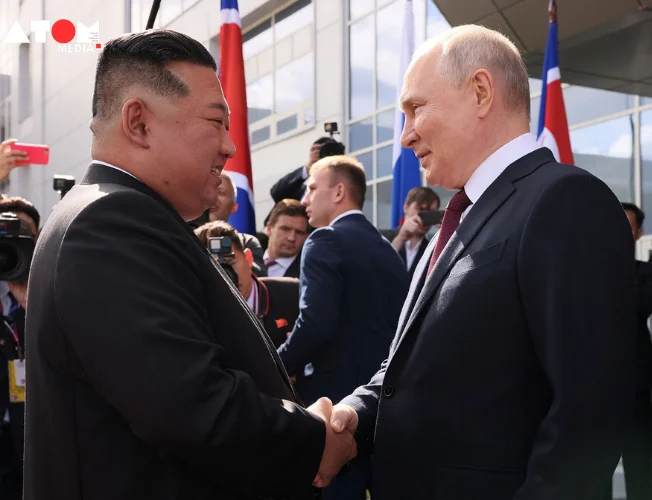Vladimir Putin, the president of Russia, is scheduled to embark on a historic journey to North Korea, which will be his first formal visit in twenty-four years and highlight the growing bilateral relationship between the two nuclear-armed countries. The visit, which is set for June 18–19, follows an official invitation from North Korean leader Kim Jong Un during his September tour to the eastern part of Russia. This will be their first in-person meeting since 2019.
The Kremlin’s Announcement and North Korea’s Response
In a statement, the Kremlin confirmed Putin’s impending visit and emphasised its importance in diplomatic ties. Using the official name of North Korea, the Kremlin said, “Vladimir Putin will pay a friendly state visit to the Democratic People’s Republic of Korea at the invitation of the Chairman of State Affairs of the DPRK, Kim Jong Un.” North Korea’s official news agency, KCNA, confirmed the statement in the meanwhile but withheld additional information regarding the agenda.
Historical Context and Bilateral Relations
Putin last visited Pyongyang in July 2000, not long after taking office, and had a meeting with Kim Jong Il, the father of the current leader of North Korea. Prior to the visit, Putin highlighted the solid bilateral relations that have grown over the past 70 years, stressing mutual respect and trust, in a letter that was published in the North Korean newspaper Rodong Sinmun. He argued for a safe Eurasian architecture and stated his goal to improve trade systems free from Western interference.
Geopolitical Implications and Regional Concerns
The United States and other surrounding countries are concerned about how the upcoming summit between Putin and Kim Jong Un may affect regional security. Amid North Korea’s continued military modernization efforts and geopolitical tensions, South Korea and the US have been closely monitoring the situation, fearing potential implications.
Economic and Military Dynamics
There are rumours that the visit would make it easier for military technology and financial aid to be exchanged, possibly even involving the trade of weapons. International attention has been drawn to this development, especially in view of current UN Security Council resolutions that forbid such transactions because of North Korea’s nuclear weapons programme. Although worries remain, North Korea and Russia have both denied breaking any of these resolutions.
Expert Analysis and Future Prospects
Leif-Eric Easley of Ewha Womans University and other experts contend that the summit strengthens Kim Jong Un’s internal legitimacy and improves North Korea’s international stature in the context of shifting global power dynamics. Furthermore, Pyongyang’s pursuit of alternative economic partnerships beyond its traditional ally, China, is indicated by its strategic engagement with Russia.
Result and Prospects
The world keeps a careful eye on Putin as he sets out on this momentous diplomatic trip to Pyongyang with important Russian officials, such as Foreign Minister Sergey Lavrov and Defence Minister Andrei Belousov. The decisions made at the conferences may have an impact on international alliances, regional dynamics, and global security as well as economic policies in Eurasia.
Read more: Marketing News, Advertising News, PR and Finance News, Digital News





